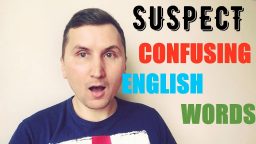ほとんどの人にとって、「目的」を意味する英単語はpurposeと学校の英語で習ったのではないでしょうか。ところが大人になっていろいろな英語に接するうちに、目的を意味する単語としてpurpose以外の言葉が使われていることを目にするようになります。アカデミックな文章だと、研究の目的といえばpurposeよりもobjectiveが使われるように思います。研究計画を具体的に書く場面ではaimという単語もよく見ます。
purpose, objective, aim, goalの違い
そうなると、purpose, objective, aimなどは一体どうやって使い分けられているのかという疑問が湧きます。ネットの解説記事を探してみますと:
purpose: what you want to achieve when you do something
aim: something you hope to achieve by doing something
objective: the specific thing that you are trying to achieve – used especially about things that have been officially discussed
上の説明は自分にはしっくりきました。ただし、説明文の方の微妙な差異が感じられない人にとってはやはりわからないままかもしれません。別の説明を見てみます。
Goal is something which we strive to achieve.
Purpose is something that influences goal. Purpose is the reason for achieving the goal.
Objective is the specific action which one try to achieve as a short term plan.(引用元:https://www.quora.com/Whats-the-difference-between-goal-purpose-and-objective)
”目的”の類義語でgoalまで出てきましたが、この説明も分かりやすいです。この理解で例文をつくってみるならば、
自分の人生のgoalは金持ちになることで、自分の人生のpurposeは人の役に立つこと。自分がブログをやっているobjectiveは副収入を得ること。
とでもなりましょうか。上の内容は本心とは無関係で、当てはまりそうなことを考えただけです。
別の品詞の意味からの理解
objectiveは形容詞もありますし、aimは動詞もあります。これらの意味が、”目的”の意味合いの違いを考えるヒントになるのではないかと思いました。
Example- The program will aim at deepening understanding.
Objective is of a person or their judgement not influenced by personal feelings or opinions
(引用元:https://www.quora.com/What-is-the-difference-between-goal-aim-objective-and-vision)
上の例文を読めば、aim: something you hope to achieve by doing something という先の説明とぴったり合います。objectiveは形容詞だと「客観的な」という意味ですが、そう考えれば、objective: the specific thing that you are trying to achieve – used especially about things that have been officially discussed という先の説明が納得できます。objective(目的)には主観や、感情などが入っていないんですね。aimには、何かをやることによって目的を達成する場合に使われるようです。
aimが適しているかどうか悩んだときは、aim of 名詞 を、名詞 aim at ~ のように書き換えられるかどうかが一つの手がかりになると思います。
purpose と objective の互換性
しかしYouGlish.comで”the purpose of the“と検索して使用例を見ていると、objectiveが使える場面でpurposeも使われていることがわかります。
YougLish.comで例文を学ぶ
Youglish.comを聴く限り、purposeとobjectiveはどちらを使っても意味に差がないケースがあるようです。
- “the aims of the …” 54件
- “the aim of the …” 195件
- “the goal of the …” 977件
- “the objectives of our …” 10件
- “the objective of the …” 130件
- “the objectives of the …” 110件
- “the purpose of the …” 1682件
- “the purposes of the …” 202件

